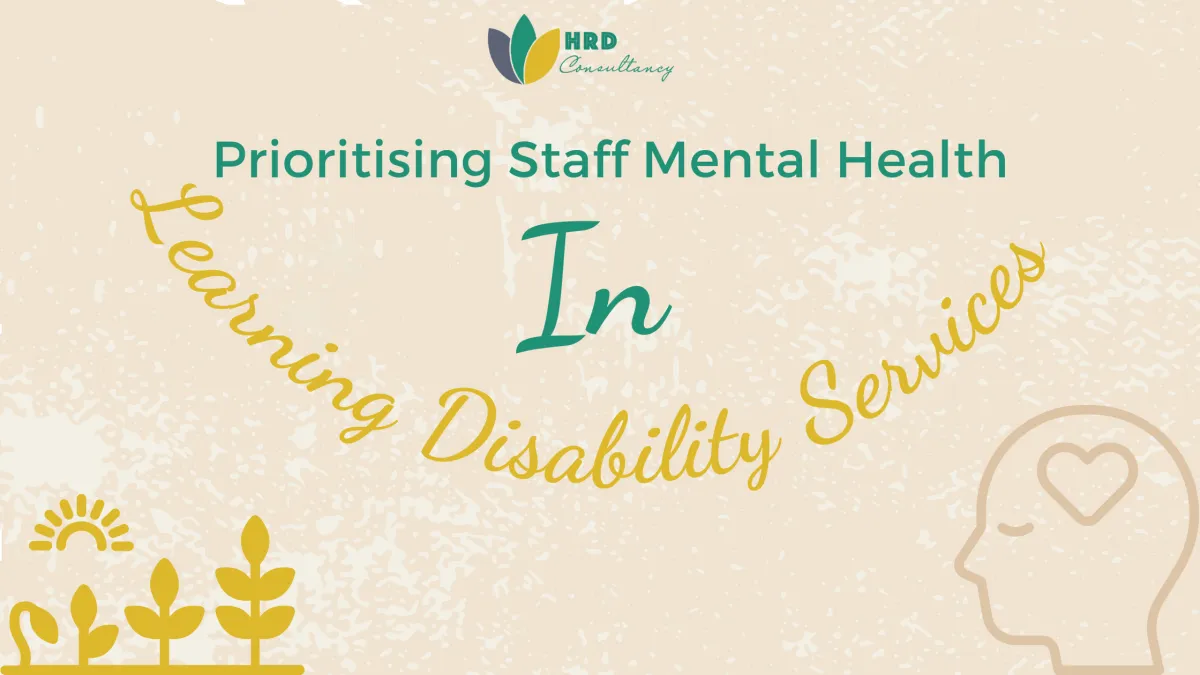
Prioritising Staff Mental Health
As a Leader of a Learning Disability Organisation How Are You Looking After the Mental Health of Your Staff?
As a leader of a learning disability organisation your commitment to providing high-quality, values-based, and psychologically informed care for individuals with learning disabilities is commendable.
Your dedication to empowering them to lead fulfilled lives in services tailored to their needs sets you apart as a caring and responsible leader. However, amidst your focus on the well-being of service users, it's crucial not to overlook the mental health of your staff.
After all, they are the backbone of your organisation, and their well-being directly impacts the quality of care they can provide.
Some common challenges
1. The Weight of Responsibility: As a leader, you carry the responsibility of ensuring your staff can deliver the best care possible. This can sometimes become overwhelming, leading to stress and anxiety.
2. High Demands: The nature of the job demands empathy, patience, and understanding, which can be emotionally draining over time.
3. Staff Retention: The demanding nature of the work may lead to burnout and staff turnover, making it challenging to maintain a stable and experienced team.
4. Emotional Impact: Witnessing the struggles and challenges faced by service users can take an emotional toll on staff members.
5. Limited Support: There might be limited resources or access to mental health support within the organisation, leaving staff feeling unsupported in times of stress.
Ideas and Solutions
1. Prioritise Self-Care: Encourage your staff to prioritise self-care and lead by example. Emphasise the importance of taking breaks, utilising annual leave, and seeking support when needed.
2. Open Communication: Foster an environment of open communication where staff members feel comfortable discussing their mental health concerns without fear of judgement.
3. Training and Education: Provide training and workshops on stress management, coping strategies, and self-care techniques to help your staff build resilience and manage their emotional well-being.
4. Mental Health Resources: Explore available mental health resources in your local community or online that your staff can access when needed. Make sure they are aware of the support available to them.
5. Team-Building Activities: Organise team-building activities and social events to strengthen the bond among staff members and promote a supportive work environment.
Your dedication to the well-being of service users is undeniable. However, to continue providing exceptional care, it is essential to prioritise the mental health of your staff.
By creating a supportive and understanding work environment, offering resources and training, and encouraging open communication, you can ensure your team remains resilient and committed to their mission.
How do you currently address the mental health needs of your staff, and what additional measures could you implement to further support them in their roles?
If you’re an overwhelmed leader and looking for some approaches to look after your wellbeing and mental health for you and your team, I’d love to help look at a plan to build this in, feel free to book a free strategy consultation call today.
